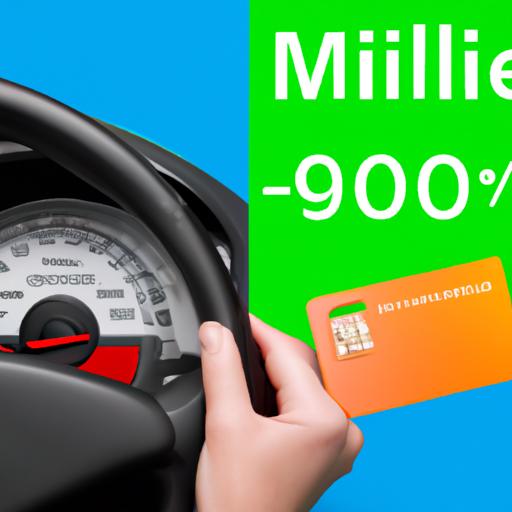Introduction
Are you tired of paying exorbitant premiums for auto insurance, even though you rarely use your car? If so, pay per mile auto insurance might be the perfect solution for you. In this article, we will explore the ins and outs of pay per mile auto insurance, its benefits, and how it works. So, buckle up and let’s dive into the world of pay per mile auto insurance!

How Does Pay Per Mile Auto Insurance Work?
Understanding the Pay Per Mile Insurance Model
Pay per mile auto insurance is a revolutionary concept that charges policyholders based on the number of miles they drive. Instead of traditional fixed premiums, pay per mile insurance allows you to pay only for the miles you actually drive. This means that if you drive less, you pay less – it’s as simple as that!
Tracking Methods for Pay Per Mile Auto Insurance
Insurance companies utilize various tracking methods to monitor your mileage accurately. These methods include GPS tracking devices, telematics, and smartphone apps. By tracking your mileage, insurers can calculate your premiums more accurately, ensuring that you only pay for the miles you drive.
Calculating Premiums Based on Mileage and Other Factors
Pay per mile auto insurance takes into account not only your mileage but also other factors that influence your insurance premiums, such as your driving history, age, and the type of vehicle you own. These factors, combined with the number of miles you drive, help insurers calculate your customized premium, tailored to your specific driving habits and risk profile.
Examples of Pay Per Mile Auto Insurance Providers
Several insurance companies have embraced the pay per mile model, offering innovative and flexible policies to cater to the needs of low-mileage drivers. Companies like Metromile, Mile Auto, and Allstate’s Milewise are leading the way, providing pay per mile auto insurance options that can help you save significantly on your car insurance premiums.

Advantages of Pay Per Mile Auto Insurance
Cost Savings for Low-Mileage Drivers
If you’re someone who doesn’t drive much, pay per mile auto insurance can be a game-changer for your budget. Traditional insurance policies often charge fixed premiums that don’t take into account how often you use your car. With pay per mile insurance, you’ll only pay for the miles you drive, potentially resulting in substantial cost savings.
Incentives for Safe Driving Habits
Pay per mile auto insurance encourages safe driving habits by rewarding responsible drivers. Insurers may offer discounts or bonuses for maintaining good driving records, which can translate into additional savings on your premiums. This not only helps you save money but also promotes safer roads for everyone.
Flexibility and Customization Options
Unlike traditional auto insurance, pay per mile policies provide greater flexibility and customization options. You have the freedom to choose a plan that aligns with your unique driving habits and lifestyle. Whether you’re a weekend warrior, occasional driver, or urban commuter, pay per mile insurance offers tailored coverage that suits your needs.
Environmental Benefits of Reducing Carbon Footprint
By charging based on mileage, pay per mile auto insurance indirectly promotes environmental sustainability. As drivers become more conscious of their carbon footprint, opting for pay per mile insurance can serve as an eco-friendly choice. By encouraging reduced driving, this insurance model contributes to a greener and more sustainable future.

Considerations Before Opting for Pay Per Mile Auto Insurance
Eligibility Criteria and Limitations
While pay per mile auto insurance presents numerous advantages, it’s vital to consider the eligibility criteria and potential limitations. Some insurers may require you to install tracking devices or use specific smartphone apps to accurately monitor your mileage. Additionally, pay per mile insurance may not be suitable for high-mileage drivers or those who frequently travel long distances.
Comparison with Traditional Auto Insurance Policies
Before making a decision, it’s crucial to compare pay per mile auto insurance with traditional policies. Evaluate your driving patterns, estimated mileage, and current insurance needs to determine which option best aligns with your requirements. Consider factors such as coverage, deductibles, and overall cost to make an informed choice.
Potential Drawbacks and Limitations of Pay Per Mile Auto Insurance
While pay per mile auto insurance offers numerous benefits, it’s essential to be aware of potential drawbacks. Depending on your driving habits, the cost per mile may be higher than traditional fixed premiums in certain scenarios. Additionally, if you exceed your estimated mileage, you may face additional charges. Carefully assess your driving patterns and budget to ensure pay per mile insurance suits your needs.
Tips for Choosing the Right Pay Per Mile Auto Insurance Provider
Selecting the right pay per mile auto insurance provider is crucial to ensure a seamless and satisfactory experience. Research different providers, compare their offerings, and read customer reviews to gauge their reputation and customer service quality. Consider factors such as pricing, coverage options, and the technology used for mileage tracking. Don’t hesitate to ask questions and seek clarification before finalizing your decision.
Conclusion
Pay per mile auto insurance is revolutionizing the way we approach car insurance, offering fair and flexible coverage for drivers who rarely use their vehicles. By charging based on mileage, this innovative insurance model provides cost savings, incentives for safe driving habits, and customization options. However, it’s essential to weigh the eligibility criteria, limitations, and potential drawbacks before making a switch. With careful consideration and research, pay per mile auto insurance can help you save money while enjoying tailored coverage that fits your unique driving habits. So, why pay for miles you don’t drive? Embrace the pay per mile revolution and experience a smarter way to save on car insurance.






